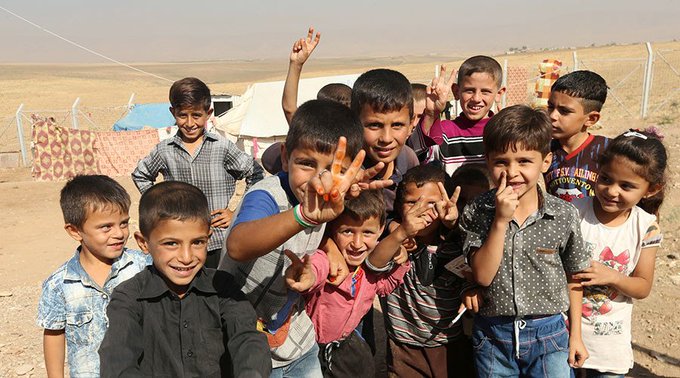WASHINGTON: Muslim voters may play a larger than size role in the US elections next week as the race for the White House shapes into a close competition between Hillary Clinton and Donald Trump.
 The competition, which clearly favoured Clinton until this week, tightened after investigators revisited her email issue and media reports claimed that they discovered thousands of new emails that were not reported before.
The competition, which clearly favoured Clinton until this week, tightened after investigators revisited her email issue and media reports claimed that they discovered thousands of new emails that were not reported before.
A summary of the opinion surveys released on Sunday showed that the revived email scandal narrowed Hillary Clinton’s double-digit lead to single digits. The RCP poll average gave Clinton 47.6 per cent chances of winning the election against Trump’s 43.3. This narrowed Clinton’s lead to 4.3pc, compared to a more than 10-point lead she had last week. Both candidates, however, still have negative favourability ratings: minus 7.4 for Clinton and minus 21.2 for Trump.
This makes the race so tight that every vote counts, even those of Muslims.
There were 3.3 million Muslims in the United States in 2015, which is about 1 per cent of the country’s population, according to the Washington-based Pew Research Centre. Compare this with 17pc Latinos and 13pc blacks and it shows why in previous elections nobody talked about winning over or losing Muslim votes.
And it also shows why both Democrats and Republicans are reaching out to Muslim voters this year, particularly in the urban areas of key swing states where Muslims do have a noticeable presence.
Their near-total rejection of Donald Trump discourages Republicans from contacting Muslims but as the race tightened, they started contacting Muslim media outlets, including Dawn, with messages emphasising Trump’s business contacts with the Muslim world.
Democrats are more active and vocal too. Last week, they released a video featuring Khizr Khan, the father of a slain US soldier, and it had an “incredibly powerful message,” as The Washington Post noted.
Mr Khan talks about how Mr Trump’s anti-Muslim rhetoric hurts all, even those who sacrificed their loved ones for the country. Mr Trump attacked Mr Khan as a Democratic trickster, playing on grief to help elect Hillary Clinton.
The Clinton campaign is playing the ad in swing states, including Florida, Iowa, Nevada, New Hampshire, North Carolina, Ohio and Pennsylvania, where Muslim votes can make a difference. And such messages are having an impact.
The Council on American-Islamic Relations (CAIR), an umbrella organisation with offices across the country, released a survey report this week, showing that 72pc of those surveyed intend to vote for Mrs Clinton, while just four per cent pledged to vote for Mr Trump.
Three in five Muslims also said they believe the Democratic Party was friendly toward them while 37pc said it was neutral. By contrast, less than one in 10 felt the same way about the Republican Party, though 31pc said the party was neutral.
The CAIR report also claimed that Muslims were fired up this election cycle as 86pc of registered Muslim voters plan to cast ballots.
US media surveys of predominantly Muslim neighbourhoods also confirm this finding as most outlets reported overwhelmingly pro-Democratic sentiments among the residents.
The CAIR report acknowledges that Muslims are only one per cent of the total US population but said that when they are clubbed with South Asians, Middle Easterners and other non-Latino immigrants, “they form a Democrat-leaning mass.”
US media reports warn that in some places, even a few thousand votes can swing the results either way.
Winning these votes is also important because US presidents are not chosen by popular vote, but through an Electoral College system that elevates the importance of several competitive states, such as Florida, Ohio, Michigan, Pennsylvania and Virginia. The Electoral College consists of 538 electors, distributed among states according to their representation in Congress.
A majority of 270 electoral votes is required to elect the president and that’s why it is also important to win states, not just an overall majority.
Muslim voters are concentrated in areas, which can swing a state either way. In Florida, Hillary Clinton leads polls by less than three per cent; in Ohio, her lead is narrower than two points.
But Sajid Tarar, a Pakistani-American businessman, rejects the suggestion that most Muslims would vote for Hillary Clinton.
“Muslims are a religious community and Mr Trump backs for issues that are closer to Islam,” says the Trump supporter who also addressed the Republican convention earlier this year. “Democrats spouse same-sex marriage, legalising cannabis and socialism, values that negate Islam.”
But the CAIR survey shows that 85pc Muslims blame Mr Trump for fanning Islamophobia and this is enough for them to vote for his rival.






























